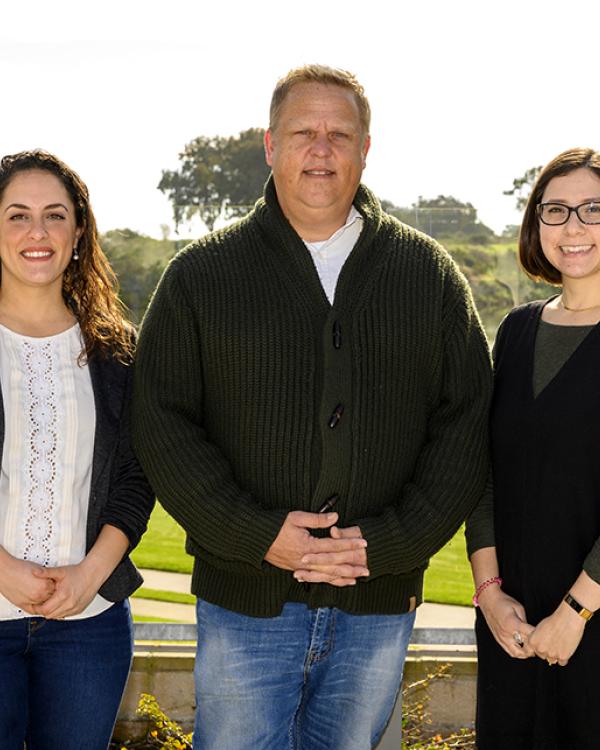
The 2020 Alumni Fellows in Education (l-r): Melissa Gordon Wolf, Delwin Carter, Emily Evanstein
Melissa Gordon Wolf was named the recipient of the 2020 Alumni Fellowship in Education—Award for Excellence in Research and Delwin Carter and Emily Evanstein were named the recipients of the 2020 Alumni Fellowships in Education—Award for Excellence in Teaching/Mentoring. All three are doctoral students in the Department of education at UC Santa Barbara’s Gevirtz School. Generously funded by alumni, the purpose of these awards is to support deserving graduate students in the Department of Education who shows great academic promise and excellence in the areas of research and teaching, respectively.
Delwin Carter is a doctoral student emphasizing in quantitative methods. His advisor is Karen Nylund-Gibson. He received his B.A. in Psychology and M.A. in Experimental Psychology at California State University, Northridge. His broad interests include latent variable analysis, measurement, and structural equation modeling. More specifically, he has done research in several substantive areas including peer victimization, perceived discrimination, and depression. Methodologically speaking, his current research involves mediation/moderation, factor analysis, measurement invariance, and item-order effects.
Emily Evanstein is a doctoral candidate studying Special Education under the guidance of her advisors, Dr. Rachel Lambert and Dr. Amber Moran. She serves as an instructor and supervisor in the Teacher Education Program at UCSB supporting candidates pursuing a Mild/Moderate Education Specialist Credential and also instructs courses at Antioch University, Santa Barbara, where she works with both multiple subject and dual credential candidates. Prior to her doctoral studies, Emily taught special education at the elementary level in east San Jose and Santa Barbara, California. She holds a Mild/Moderate Education Specialist Credential. Emily’s research focuses on how general education and special education teachers can be taught to collaborate more fully.
Melissa Gordon Wolf is a doctoral student focusing on quantitative research methods under the guidance of Dr. Andrew Maul. Her primary focus is on the measurement of ontologically subjective attributes and the validity of the scales designed to assess them. Methodologically, she is interested in latent variable and psychometric analyses (SEM, mixtures, IRT), atypical approaches to measurement (such as network analysis), and research design. She is currently working on projects related to invalid and deceptive responses on surveys, the nature of constructs (kinds vs continua), cut scores, and evidence for validity based on the response process.